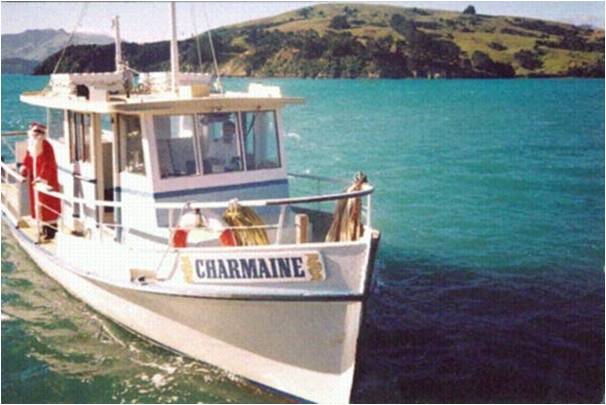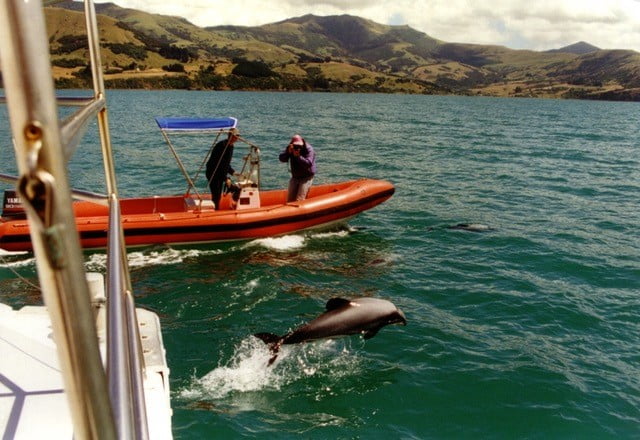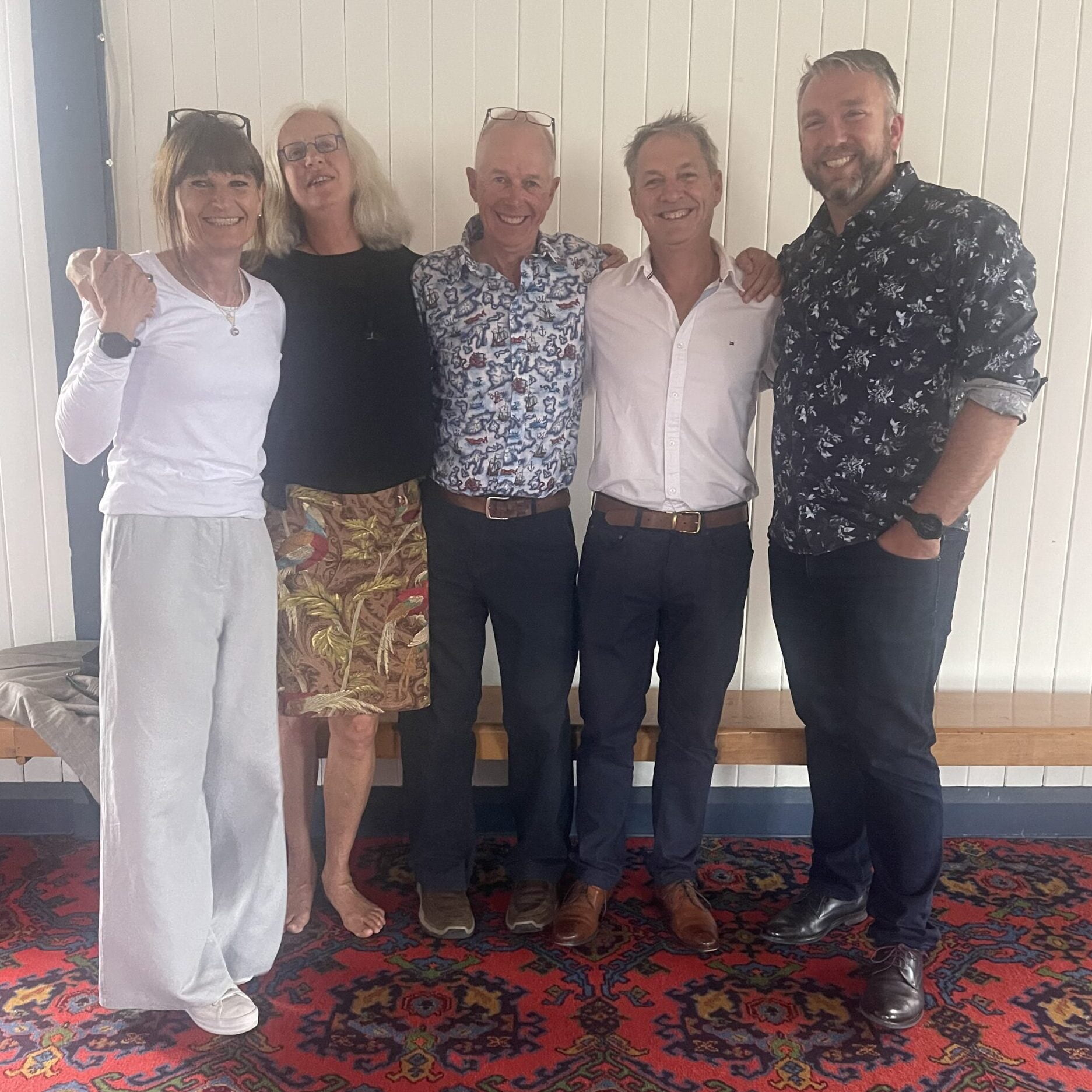As Emeritus Professor’s Liz Slooten and Steve Dawson pass the baton for Hector’s Dolphin conservation, we take a look back to their chance encounter with our founder Ron Bingham, and how their dedication to research leaves a lasting legacy in Akaroa and beyond.
Imagine this scene back in 1985: Two boats gently approach each other in the serene waters of Akaroa Harbour. One, the ‘Charmaine’, a modest tourist vessel; the other, a small inflatable carrying two PhD students, Liz Slooten and Steve Dawson.
Their encounter with Ron Bingham, the skipper of Akaroa Harbour Cruises, marked the beginning of something extraordinary. “Ahoy, how are you?” Ron called out. “Good, thanks. We’re starting a dolphin study here. Thought you might find the results interesting,” replied Liz and Steve.
Ron knew the Banks Peninsula’s moods like the back of his hand. He worried about the pair’s safety in their tiny boat but was also intrigued by what he could learn about the dolphins. This chance meeting sparked a lifelong partnership between the cruise company, later known as Black Cat Cruises, and Liz and Steve, who would lead their research for an incredible 40 years – the longest study of any marine mammal population in New Zealand.

Ron Bingham & the Charmaine

Liz & Steve in the early days.
Changing the course for Hector’s Dolphin in Akaroa
The early findings were alarming. Hector’s dolphins were reproducing slowly, and with the fatalities observed in the ’80s, their future seemed bleak. Liz and Steve’s research was a wake-up call, leading to significant conservation efforts, including the creation of the Banks Peninsula marine mammal sanctuary.
Meanwhile, Black Cat Cruises became more than just a tour operator. They turned into conservation allies, spreading the word to locals and visitors alike, who in turn could influence political decisions. This collaboration wasn’t just good for the dolphins; it boosted demand for cruises out to see the dolphins, helping the young company to get established in the 1980s.
Fast forward to a recent gathering in Akaroa, where students, friends, and stakeholders reflected on the past four decades. There were personal stories, like those involving Captain Ron and Captain Juliano from Black Cat, and professional discussions about the progress made in conservation. It’s a mix of pride and a gentle nudge that more could be done.
Leaving a legacy for conservation and eco-tourism
Liz and Steve’s commitment to Hector’s dolphins is unparalleled. Their research has illuminated the dolphins’ behavior, population dynamics, and the threats they face. This knowledge has been pivotal in shaping effective conservation strategies and raising awareness. And together they have been outstanding and brave spokespeople in the face of skeptics and naysayers. Quite simply without their work, the dolphins would be in a perilous position today. For that all of us remain forever grateful.
Black Cat Cruises has not only spread the word but also actively supported research and conservation efforts, funding equipment, advocacy and data collection. There have also been many personal friendships made through a shared love of dolphins.
The collaboration between Liz, Steve, and Black Cat Cruises has shown how eco-tourism and conservation can work hand in hand, benefiting not just marine conservation but also a local community by creating jobs.
Looking ahead, Will Rayment and a team of conservationists are ready to take the baton from Liz and Steve. Black Cat Cruises remain steadfast supporters of their mission. The journey continues, and together, we’re steering towards a future where Hector’s dolphins continue to thrive in our oceans.

Pip, Liz, Steve, Paul & Paul
at the recent gathering to celebrate
an amazing 40 years of research
To find out more about the amazing work that has been done by Liz and Steve and to make a contribution to the ongoing work, check out the NZ Whale and Dolphin Trust website.
